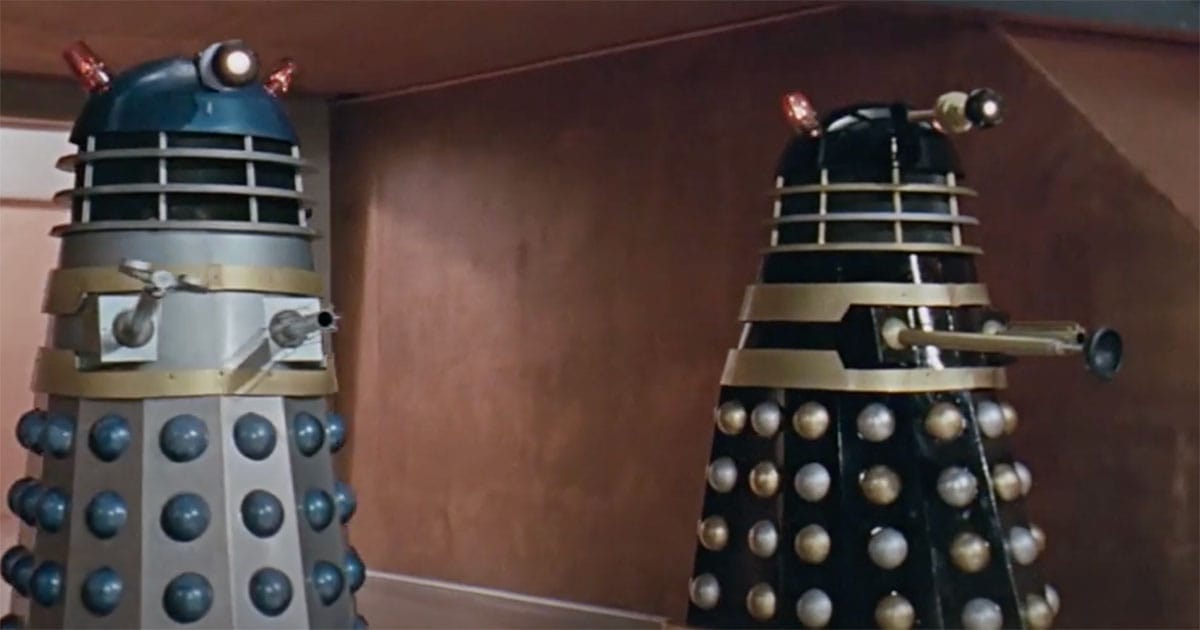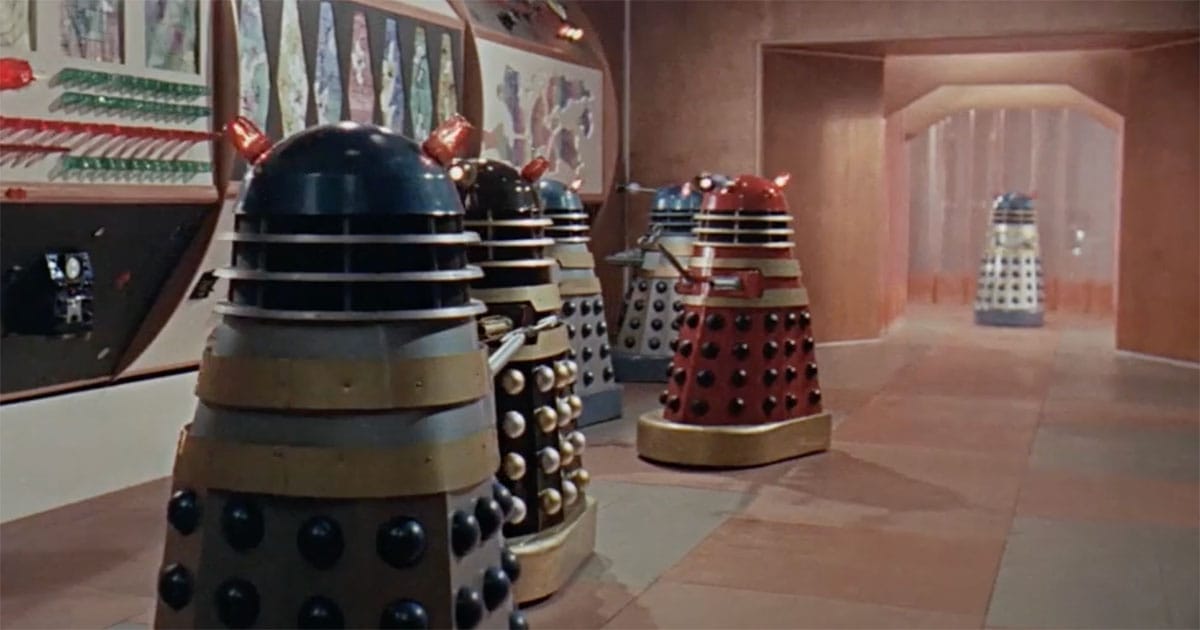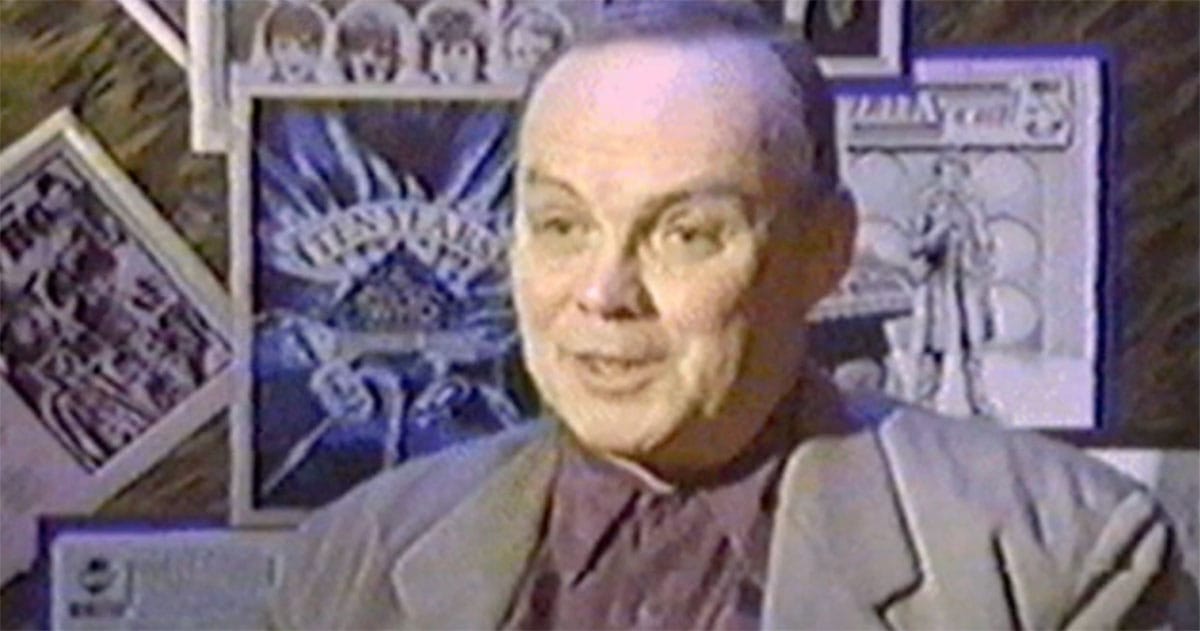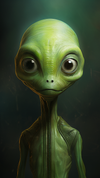Roy Skelton's Birthday and the Voice of the Daleks
Born July 20, 1931, Roy Skelton gave voice to the Daleks and other villains in "Doctor Who." This article explores how his birthday marks the legacy of a man who helped define the sound of science fiction.

This Week in Classic Science Fiction — Roy Skelton and the Daleks
Roy Skelton was born on July 20, 1931. Though his name may not be widely recognized, his voice is one of the most iconic in classic science fiction. He helped define the Daleks on "Doctor Who," giving them the harsh, staccato delivery that sent a chill through viewers. For many fans, his voice was the sound of fear.
Skelton began voicing the Daleks in the late 1960s. His work continued into the 1980s, as he brought the same mechanical menace to other alien threats. Behind the curtain, he was a master of vocal control. Every word he delivered carried weight and purpose.
While he would later become known for children's television, his science fiction roles came first. They set the foundation for his long career in voice work. His ability to shift from cold and threatening to friendly and humorous is worth remembering. But that is a story for another time.
This week, we remember the birth of a man whose voice became legendary. Skelton did not just perform. He created something lasting. His contribution to science fiction deserves another look, and that is just what we will do.
Sponsor: Walking, Killer Toaster | 行走的杀手烤面包机 | Science Fiction T-shirt

In a world where machines walk and breakfast turns belligerent, the Walking Killer Toaster t-shirt stands as a tribute to the oddities of our imagined futures. Bold, absurd and unmistakably sci-fi, it invites curiosity with every step you take. Comfortable enough for Earth, strange enough for Mars.
Giving Terror a Voice
This week marks the birthday of Roy Skelton, a man whose voice helped define an era of televised science fiction. Each year, that date reminds us how much one man's voice shaped the soundscape of classic science fiction. He was not a leading man on screen, but his work behind the scenes left a mark few could match. His legacy begins with a voice that changed the way we hear villains.
The first Daleks appeared in 1963, but Skelton began voicing them in 1967. His arrival marked a shift in how these villains sounded. With his training in theater and command of vocal tone, Skelton gave the Daleks an unforgettable cadence that became instantly recognizable.
A Rule for Robots
Skelton once explained that the Daleks could never drop their pitch. Even when they were angry, their voices had to rise in volume without changing tone. This strict control made them feel more mechanical, yet more disturbing. A Dalek did not shout with emotion, it simply became louder.
This approach fit the design of the Daleks perfectly. They looked like machines and now sounded like machines trying to mimic life. The coldness in their voices removed all sympathy, and viewers felt like they were hearing a living weapon.
More Than Just Daleks
Skelton's talents were not limited to one enemy. Over the years, he also voiced the Cybermen, the Krotons, and other alien creatures. He brought distinct qualities to each one, and his range allowed him to explore different forms of menace.
Each species in "Doctor Who" needed a unique identity, and Skelton provided that with vocal precision. From dry and clinical to harsh and barking, he could switch styles as needed. His voice gave shape to the unseen.
A Human Behind the Voice
Though he voiced monsters, Skelton was anything but frightening. Off-screen, he was known for his warmth and humor. Many fans were surprised to learn he also worked on the children's program "Rainbow," where he voiced the cheerful and silly Zippy and George.
This contrast highlighted his range as a performer. He could deliver fear on Saturday evening and comfort on weekday mornings. That duality made him a rare talent, and not many could travel so far across the emotional map.
Theater Roots and Science Fiction Futures
Before "Doctor Who," Skelton trained at the Bristol Old Vic Theatre School. He honed his voice on stage, developing the tools he would later use behind the microphone. Live performance taught him discipline, and voice work demanded the same kind of focus.
Science fiction often depends on suggestion. Sets may be sparse and effects minimal, but the voice carries the weight. Skelton understood this better than most, and his tone created worlds that were never shown on screen.
The Sound of a Generation
For many fans, Skelton's voice is tied to childhood memories. The whine of the Dalek and its monotone commands were unforgettable. Even when the effects looked dated, the voice still worked and made the threat real.

That is the power of a great voice performance. It bypasses the eyes and speaks directly to the nerves. Skelton's work remains effective decades later, not through visuals, but through sound.
A Legacy of Fear and Fun
Skelton passed away in 2011, but his work continues to be appreciated. New fans discover his performances through reruns and archival footage, while older fans remember where they were the first time they heard that voice. His contribution is not just to "Doctor Who," but to the entire science fiction genre.
He showed that fear could be built with nothing but tone and rhythm. He proved that a well-crafted voice could outlast any special effect. Today, his influence can still be heard in science fiction villains of every kind. Skelton did not just perform, he built a blueprint.
Remembering the Man
On his birthday, we do not just mark the passage of time. We remember a craftsman whose voice gave terror its most distinctive sound. His work invites us to reflect on the invisible tools that build science fiction and reminds us that some of the most powerful performances are never seen.
In celebrating Skelton, we honor the quiet skill that defines so much of what makes science fiction powerful. He did not play the Daleks, he became their sound. And through that sound, he gave classic science fiction one of its most unforgettable voices.

"Doctor Who" Voice Trivia
- Roy Skelton first voiced the Daleks in the 1967 serial "The Evil of the Daleks," which was originally intended to be their final appearance in the series.
- While voicing the Daleks, Skelton followed a strict rule—he never allowed their pitch to drop, even during moments of anger or panic.
- In addition to voicing the Daleks and Cybermen, Skelton also appeared on-screen in three different "Doctor Who" stories, playing human characters.

